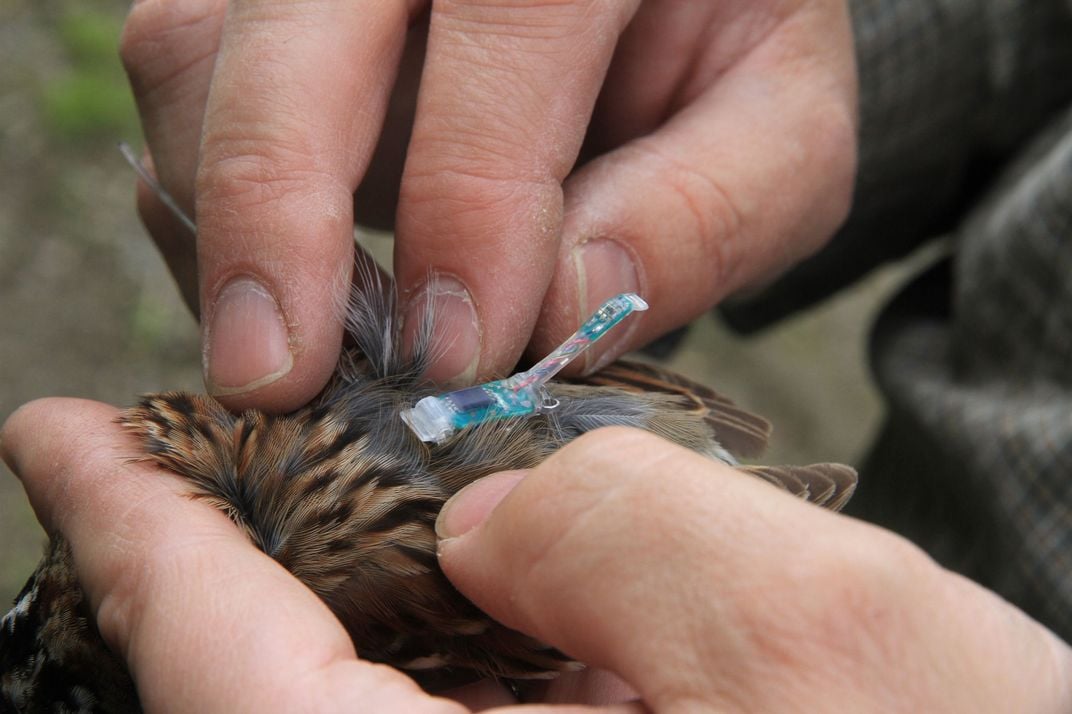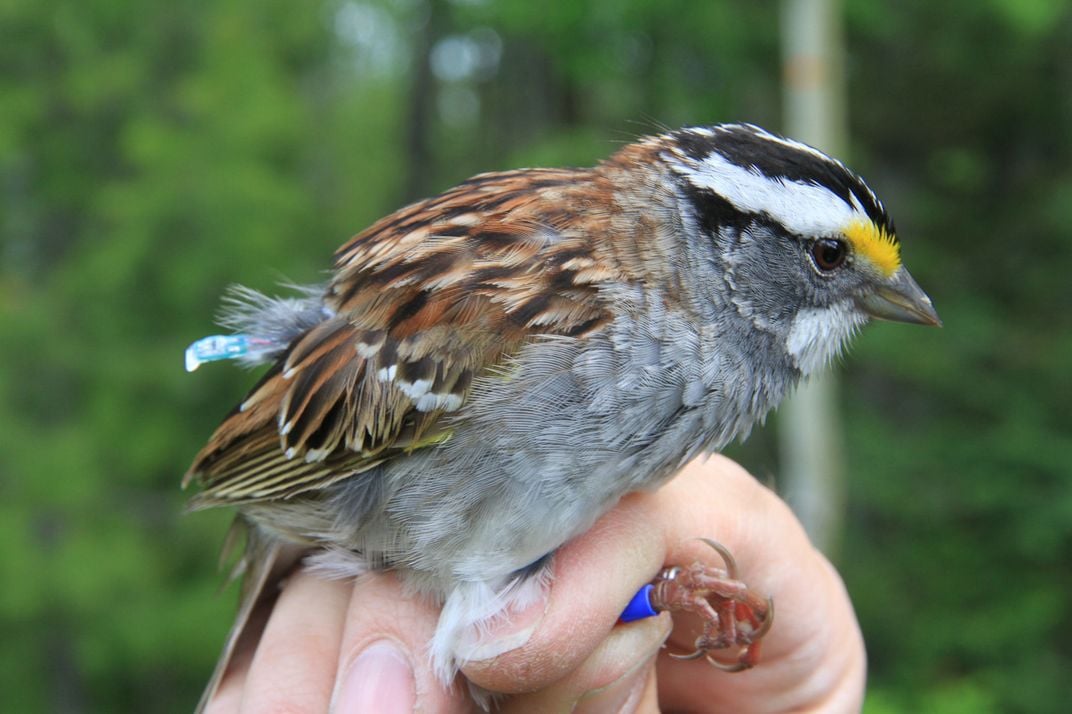Canada’s White-Throated Sparrows Are Changing Their Tune
The new song is catching on and spreading across the country at an unprecedented speed
/https://tf-cmsv2-smithsonianmag-media.s3.amazonaws.com/filer/22/77/22770ced-e442-4191-9dc5-f64402344a02/2020_july6_whitethroatedsparrowscott_m_ramsay.jpg)
“Oh, my sweet Canada, Canada, Canada,” is the white-throated sparrow’s classic tune. But in the last two decades, a remix has spread all the way from British Columbia on the west coast to Ontario and Quebec in the east.
In British Columbia, “our birds sound like they're going, ‘Oh, my sweet Cana– Cana– Cana– Canada,’” ornithologist Ken Otter tells Corryn Wetzel at National Geographic.
The three notes in “Canada” have been cut short, from a series of distinct triplets to quick, repeating doublets. Exactly why sparrows find it so compelling remains a mystery. But a new study published on July 2 in the journal Current Biology follows the path of the new song from Canada’s west coast, through breeding ranges and across the country over the course of two decades.
Otter and a colleague, Scott Ramsay, first noticed the unusual song while doing fieldwork in 2000. Ramsay, a behavioral ecologist at Wilfrid Laurier University in Ontario, was visiting British Columbia from the east coast and noticed that the sparrows sounded strange. But “it wasn't until seven or eight years later that we started to realize that the song was actually spreading eastwards,” Otter tells Mary Louise Kelly at NPR.
The researchers tracked the song’s spread over 20 years with the help of citizen scientists who submitted more than 1,700 recordings of white-throated sparrow songs. In 2004, the data shows that about half of the white-throated sparrows in Alberta, the province just east of British Columbia, had picked up the doublet-ending song. But by 2014, it was the only version of the song around. The song is still spreading in Quebec, nearly 2,000 miles east of where it started.
Usually a bird species will stick to one reliable song, and males use their songs to claim territory and attract mates. In white-throated sparrows, male birds learn the songs they’ll sing all their lives when they’re young. Sometimes adult birds wind up singing songs with slight variations, but this is the first one to catch on and spread so far, so fast.
To find out how the sparrows shared their song, the researchers strapped geolocators to 50 male sparrows in Prince George, British Columbia between 2013 and 2016. The birds set off for their seasonal migration.

Instead of traveling south, as Otter expected, the birds traveled eastward over the Rocky Mountains, where they mingled with other overwintering sparrows, according to National Geographic. There, overwintering young males from eastern Canada could learn the catchy song with the doublet ending.
“It looks like these sparrows may prefer to adopt slightly novel song variants rather than the common song.” Otter tells Gizmodo’s George Dvorsky. “However, it does seem to have to match some kind of template, as you occasionally encounter males singing variants that aren’t doublets or triplets, but these other variants don’t seem to catch on. So there must be some constraints as to what they will accept.”

The study is “the first to track the cultural evolution of birdsong at the continental scale,” CUNY Graduate Center animal behavior specialist Mason Youngblood, who was not involved in the research, tells Cara Giaimo at the New York Times.
Now, the original song that ends with “Canada, Canada, Canada,” might even peter out altogether if all the birds adopt the new tune. On a map of where each song has been recorded, in 2019, only a thin line of the original appears on the east coast.
“It's cool to realize that this sort of happenstance pattern of migration allowed [some sparrows] to then hear birds singing the other form of song”—and then spread—“like a viral contagion,” University of Massachusetts Amherst evolutionary biologist Jeffrey Podos, who was not involved in the study, tells National Geographic. Podos adds that the speed that the new song spread is “somewhat surprising.”
Now, the sparrows that came up with the doublet seem tired of their own popular tune, Gizmodo reports. In Prince George, British Columbia, the birds are already playing with new variations.


